Real Estate Trends and Market Insights in Greensboro
Greensboro's real estate market offers diverse opportunities and reflects a vibrant economic landscape. From residential homes in charming neighborhoods to burgeoning commercial districts and expanding industrial hubs, the city's real estate sector is dynamic and promising.
GREENSBOROGUILFORDLIFESTYLE
George
8/25/20245 min read

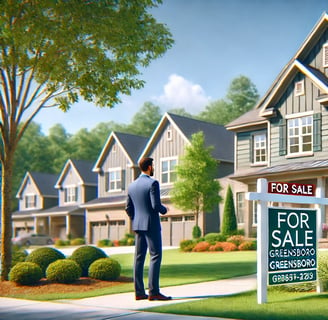
Real Estate Trends and Market Insights in Greensboro
The real estate market in Greensboro, North Carolina, is dynamic and evolving, reflecting broader economic trends and local development initiatives. Understanding these trends and insights is crucial for homeowners, investors, and real estate professionals looking to navigate the market effectively. This article provides a comprehensive overview of Greensboro's real estate landscape, covering residential, commercial, and industrial sectors, and highlighting key investment opportunities and future market projections.
Key Takeaways
Overview of the current real estate market in Greensboro.
Detailed look at residential, commercial, and industrial real estate trends.
Insights into investment opportunities and market projections.

Residential Real Estate Trends
Market Demand and Pricing Greensboro's residential real estate market has seen consistent demand, driven by population growth and economic opportunities. Home prices have been steadily increasing, reflecting the high demand and limited supply. The city's affordability compared to larger metropolitan areas also attracts new residents, particularly young professionals and families seeking a balance between urban amenities and suburban comfort.
Types of Housing The housing market in Greensboro offers a diverse range of options, including single-family homes, townhouses, and apartments. Single-family homes are prevalent in suburban neighborhoods, providing spacious lots and family-friendly environments. Townhouses and apartments are increasingly popular in urban areas, catering to professionals and retirees seeking convenience and modern living spaces.
Popular Neighborhoods Popular neighborhoods in Greensboro include Irving Park, Fisher Park, and Sunset Hills. Irving Park is known for its historic homes and upscale living, while Fisher Park offers a mix of historic charm and proximity to downtown amenities. Sunset Hills is favored by families for its community-oriented environment and beautiful tree-lined streets.
Greensboro Residential Real Estate Trends
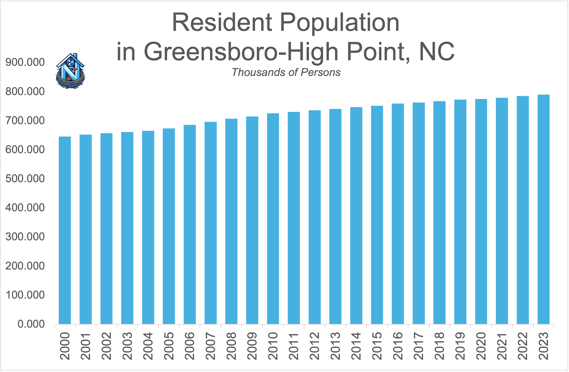

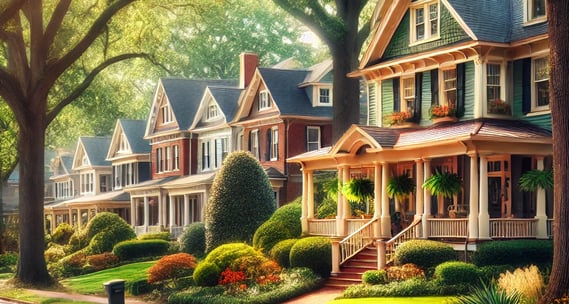


Commercial Real Estate Trends
Office Spaces The demand for flexible office spaces and coworking hubs is growing in Greensboro, driven by changing work patterns and the rise of remote work. Businesses are seeking adaptable office solutions that can accommodate hybrid work models, leading to an increase in coworking spaces and flexible lease terms.
Retail Spaces The retail sector in Greensboro is shifting towards experiential retail and mixed-use developments. Consumers are looking for shopping experiences that combine retail with dining and entertainment options. Mixed-use developments like Friendly Center and The Shops at Friendly offer a blend of retail, residential, and recreational spaces, creating vibrant community hubs.
Industrial Spaces Greensboro's industrial real estate market is experiencing significant growth, particularly in the logistics and warehousing sectors. The city's strategic location and robust transportation infrastructure make it an attractive hub for distribution centers and industrial parks. This growth is fueled by the rise of e-commerce and the need for efficient supply chain solutions.
Commercial Real Estate Trends in Greensboro


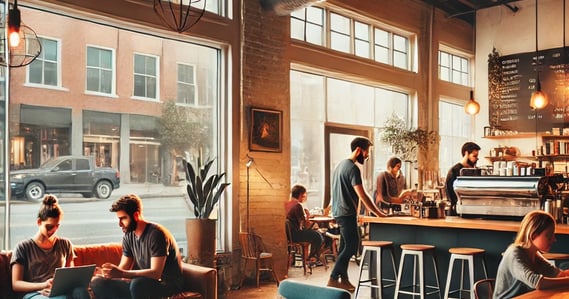

Real Estate Development
New Housing Developments New housing developments are underway across Greensboro, aimed at meeting the rising demand for residential properties. These projects include a mix of single-family homes, townhouses, and apartment complexes, designed to cater to diverse housing needs. Recent developments focus on modern amenities and community-oriented designs.
Urban Revitalization Efforts to revitalize downtown Greensboro and underdeveloped areas are gaining momentum. Urban revitalization projects aim to transform these areas into thriving residential and commercial districts, enhancing the city's appeal and economic vitality. Key initiatives include the development of mixed-use buildings, public spaces, and improved infrastructure.
Sustainable Building Practices Sustainable building practices are becoming a priority in Greensboro's real estate development. Green building initiatives, such as LEED (Leadership in Energy and Environmental Design) certifications, are being adopted to promote energy efficiency and environmental responsibility. These practices not only benefit the environment but also attract eco-conscious buyers and investors.


Real Estate Development in Greensboro
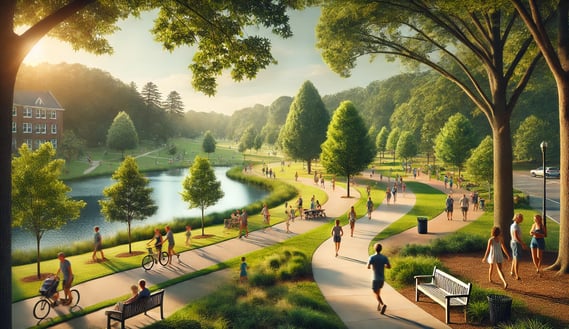

Investment Opportunities
Residential Investment Investment opportunities in Greensboro's residential real estate market are abundant, particularly in rental properties and house flipping. The city's steady population growth and demand for affordable housing make it a favorable market for residential investors. Areas with high rental demand offer lucrative returns, while house flipping can yield significant profits with the right renovations.
Commercial Investment Commercial real estate investment in Greensboro is driven by the high demand for office and retail spaces. Investors can find attractive opportunities in developing coworking hubs, experiential retail spaces, and mixed-use properties. High-traffic areas and growing business districts are particularly promising for commercial investments.
Industrial Investment The industrial real estate sector in Greensboro presents excellent investment prospects, especially in logistics hubs and industrial parks. The city's central location and transportation infrastructure make it a prime spot for distribution centers and manufacturing facilities. Industrial properties offer stable, long-term returns, making them an attractive option for investors.
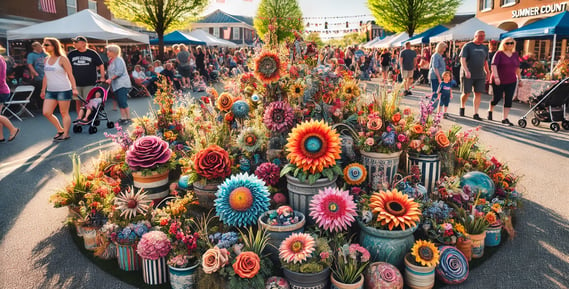

Investment Opportunities in Greensboro
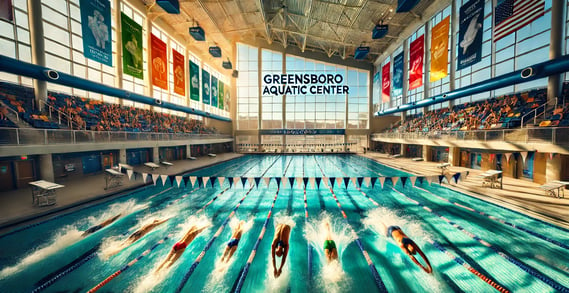

Market Projections
Short-term Projections In the short term, Greensboro's real estate market is expected to continue its growth trajectory, driven by sustained demand and economic development. Residential prices are likely to rise moderately, while the commercial and industrial sectors will see robust activity due to increased business and e-commerce needs.
Long-term Projections Over the next decade, Greensboro's real estate market is projected to remain stable and attractive for investors. Continued population growth, urban revitalization efforts, and the adoption of sustainable practices will contribute to the market's resilience and expansion. Long-term investments in residential, commercial, and industrial properties are expected to yield positive returns.
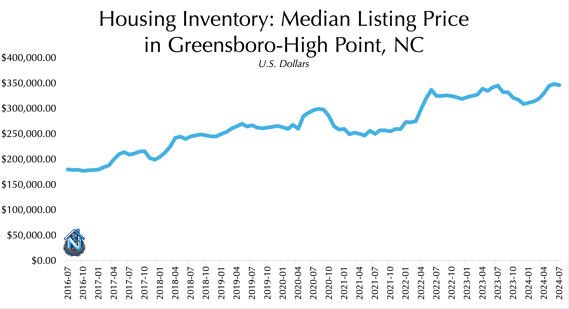

Greensboro Market Projections



Greensboro's real estate market offers diverse opportunities and reflects a vibrant economic landscape. From residential homes in charming neighborhoods to burgeoning commercial districts and expanding industrial hubs, the city's real estate sector is dynamic and promising. Understanding current trends and market insights is crucial for making informed investment decisions and capitalizing on growth opportunities. As Greensboro continues to develop and evolve, its real estate market remains a compelling option for buyers, investors, and real estate professionals alike.


